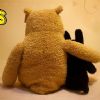|
ESL Forum:
Techniques and methods
in Language Teaching
Games, activities
and teaching ideas
Grammar and
Linguistics
Teaching material
Concerning
worksheets
Concerning
powerpoints
Concerning online
exercises
Make suggestions,
report errors
Ask for help
Message board
|
ESL forum >
Ask for help > Filling
Filling
|

nhatminh0904

|
Filling
|
|
Read the following passage and decide which answer (A, B, C, or D) best fits each gap. Write your answer (A, B, C, or D) in the numbered box.
Brave nurse saves pensioner from fire.
A nurse who saved a man from a burning house while on her (1) ����to work has been awarded a medal for bravery. Sheila McDonald (2) ���� clouds of black smoke (3) ���� from a roof of a house in Manchester. She went to investigate and quickly (4) ���� that the house was (5) ���� fire.
She knocked on the front door but there was no reply. Then she walked around the house looking in all of the windows. (6) ���� she peered into the living- room window, she saw disabled pensioner Graham Summers asleep in an armchair. She tapped on the window but couldn�t (7) ���� him up. So she smashed her way (8) ���� the window, lifted Mr Summers into his wheelchair and pushed him to safety through the (9) ���� black smoke.
At the award ceremony Mr Summers was full of praise for Ms McDonald, but she said, �I don�t really (10) ���� it an act of bravery � I just did what anyone would have done.�
1.
A. route
B. way
C. passage
D. path
2.
A. distinguished
B. detected
C. remarked
D. noticed
3.
A. running
B. pouring
C. flowing
D. trickling
4.
A. realised
B. recognised
C. identified
D. knew
5.
A. in
B. under
C. on
D. to
6.
A. Although
B. If
C. Because
D.When
7.
A. raise
B. get
C. wake
D. bring
8.
A. into
B. through
C. via
D. by
9.
A. great
B. big
C. thick
D. deep
10.
A. view
B. hold
C. see
D. consider
|
19 Apr 2016
|
|
|
|

TeachEli

|
|
1. way 2. noticed 3.pouring 4.realised. 5. on 6. when 7. wake 8. through 9.thick 10. consider |
19 Apr 2016
|
|
|

tommy1996

|
|
plz tell me why we don �t use detected for 2 and recognized for 4?Thanks |
19 Apr 2016
|
|
|

spinney

|
|
Noticed is more commonly said whereas detected is a trifle technical and somewhat formal. Realized means to become aware. Recognized would certainly work but realised seems more natural. I think TeachEli has pretty much nailed it. |
19 Apr 2016
|
|
|

alien boy

|
|
Further to Dale �s comment - �notice(d) � is becoming aware of something while not explicitly searching or investigating something. �detect(ed) �, on the other hand, would mean the individual is actively searching or looking for something. �realise(d) � is to become aware of something. Usually the implication is that a form of subconscious understanding occurs that links all the clues/info together, with a sudden insight. �recognise(d) � means to become aware of something or someone from a previous encounter or experience. It would be possible to realise a fire is occurring without having directly experienced one before. You could also recognise all the signs that a fire is occuring, but that would mean you would have (most likely) researched the indicators that a fire is happening. Cheers, AB |
19 Apr 2016
|
|
|

tommy1996

|
|
Can we �use "flowing for number 3
|
19 Apr 2016
|
|
|

spinney

|
|
Flowing sounds a little odd. Perhaps it �s a tad too poetic and positive in this context. Best used with fluids or money. Pouring works but billowing sounds much better. It �s not one of the choices, though. |
19 Apr 2016
|
|
|

alien boy

|
|
Again, Dale �s right. Think about the emotive aspect of the words, too. Flowing tends to be an even quantity, smoothly moving, whereas pouring is somewhat more erratic, in varying but large quantities. Billowing is often used to describe things affected by air movement (e.g. billowing sails, billowing clouds) so could be more appropriate if it had been an option. Cheers, AB |
20 Apr 2016
|
|
|